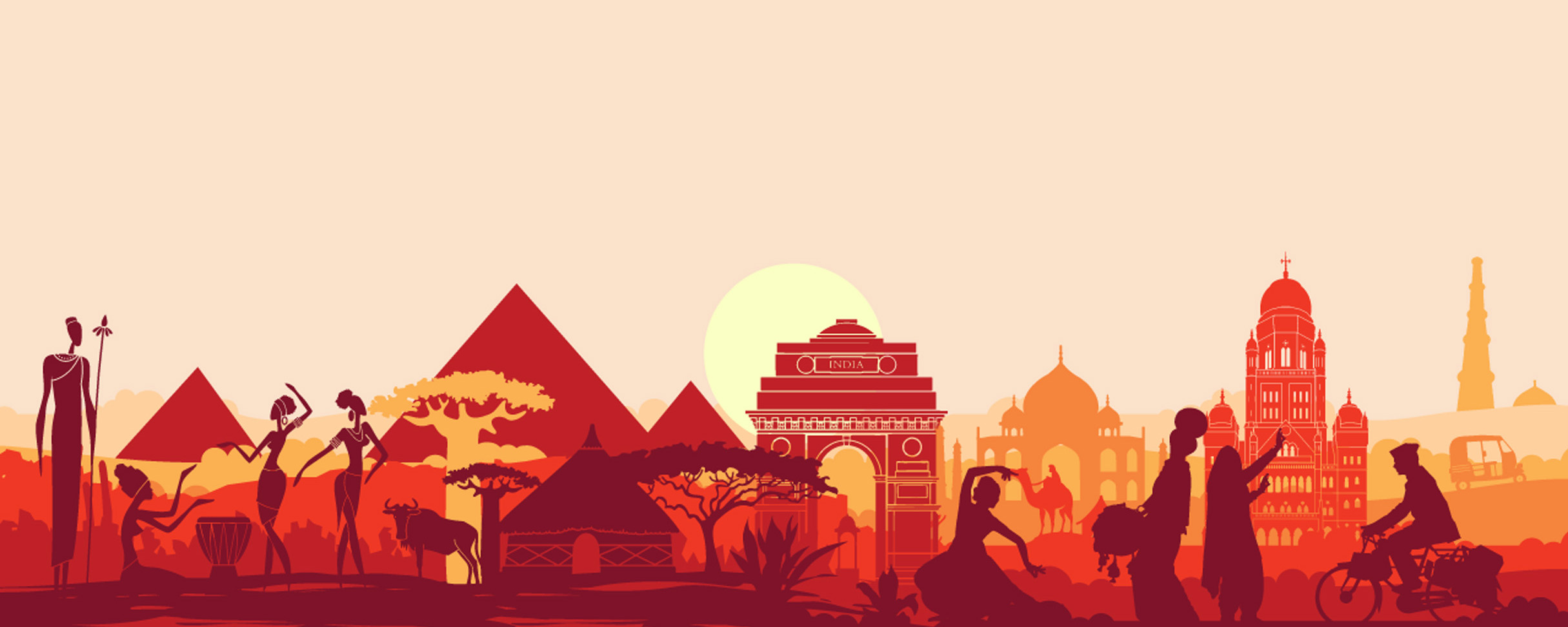India’s Gambit in Africa


Africa, long marginalized in global power politics, is now the epicenter of a new geopolitical contest. From mineral-rich deserts to maritime chokepoints, the continent is emerging as a strategic chessboard where global powers—including the United States, China, Russia, the European Union, and Gulf nations—are actively vying for influence. While this "New Great Game" intensifies, a silent yet significant player—India—is increasingly repositioning itself in Africa. For New Delhi, this contest is not merely about outpacing rivals; it's about securing national interests that are inextricably linked to the continent’s economic promise, strategic geography, and demographic dynamism.
India’s Africa Footprint: Legacy, Leverage, and Limitations
India’s engagement with Africa is not new, being grounded in a rich historical fabric woven through shared colonial experiences, South-South solidarity, and a robust diaspora of over three million people, particularly in East and Southern Africa. These communities have been instrumental in sustaining cultural and commercial ties, providing India with soft power that few external players can match. Over the years, India has expanded its development diplomacy through concessional lines of credit, humanitarian aid, capacity-building programs, and a strong emphasis on digital public goods. Initiatives such as the Pan-African e-Network Project and ITEC (Indian Technical and Economic Cooperation) have enhanced India's profile as a development partner that focuses on empowerment rather than exploitation. Yet, despite these legacy strengths, India remains a marginal player compared to China’s financial muscle and the West’s military-industrial reach.
Strategic Stakes: What Africa Means to India
Africa offers India a rare convergence of economic and strategic opportunities. First, there is energy security; several African nations, including Nigeria, Angola, and Mozambique, are vital sources of oil and gas that can diversify India’s import basket. Second, Africa is home to substantial deposits of rare earth elements, cobalt, and lithium, which are critical for India’s green energy transition and tech manufacturing. Third, the African Continental Free Trade Area (AFCFTA)—the world’s largest by number of participating countries—provides a springboard for Indian businesses seeking new markets. India's pharmaceutical, fintech, and agricultural technology sectors can find fertile ground in Africa’s burgeoning middle class and young population. Maritime security is another critical vector. With nearly 90% of India’s trade by volume traversing the Indian Ocean, securing key maritime routes, especially those skirting the eastern coast of Africa, is crucial. Indian naval presence in places like Seychelles and Mauritius is a step in the right direction, but New Delhi must deepen security cooperation with littoral African states to protect its sea lines of communication.
The Challenges: Giants in the Room
However, India’s Africa aspirations face formidable headwinds. China’s presence in Africa, under the Belt and Road Initiative (BRI), is both extensive and entrenched, manifested in massive infrastructure projects, debt-financed investments, and diplomatic blitzkriegs. From ports in Djibouti to rail lines in Kenya, China has embedded itself in Africa’s economic and strategic architecture. Unlike India’s cautious and need-based investments, China’s approach is aggressive, often outbidding competitors and offering swift implementation. Simultaneously, the U.S. and its Western allies are intensifying their military footprint in Africa under the banner of counter-terrorism and security cooperation. The establishment of military bases and strategic outposts—such as Camp Lemonnier in Djibouti—has militarized diplomacy and added a hard power dimension to the contest. India, with its principle of non-intervention and emphasis on sovereignty, struggles to match this pace or appeal. Moreover, Gulf countries like the UAE and Saudi Arabia are making strategic inroads, especially in the Horn of Africa, leveraging their financial clout and religious-cultural affiliations. India, lacking both the scale of investment and the ideological appeal, risks being overshadowed unless it recalibrates its strategy.
The Way Forward: Policy Shifts and Diplomatic Agility
To remain relevant in this evolving African calculus, India needs to adopt a multidimensional strategy. This strategy involves scaling up investment by transitioning from aid-based engagement to scalable investments in key sectors like digital infrastructure, healthcare, and renewable energy, leveraging public-private partnerships to project long-term commitment. It also necessitates forming strategic partnerships, joining hands with like-minded countries such as Japan, France, or the UAE for joint ventures and developmental collaborations to help pool resources and mitigate China’s dominance. Furthermore, maritime and security diplomacy must be enhanced through increased naval diplomacy, more active participation in African peacekeeping missions, and offering maritime training programs to African nations, potentially instituting a coordinated Indo-African maritime security dialogue. Institutionalizing engagement is also vital, requiring platforms like the India-Africa Forum Summit (IAFS) to be regularized and made more outcome-oriented, along with strengthening Indian missions in Africa with better staffing and local knowledge. Finally, digital public goods should be employed as a flagship initiative, sharing India’s success with platforms like Aadhaar and UPI with African nations under a framework of digital sovereignty and inclusive development, thereby creating strategic dependencies that go beyond traditional aid.
Conclusion: A Moment Not to Miss
The New Great Game in Africa is not just a replay of Cold War power politics; it is a redefinition of global order where developmental models, values, and influence are being tested. For India, the contest is not merely with China or the West, but with time itself. If New Delhi can proactively realign its policies, broaden its coalitions, and invest smartly in Africa’s future, it will not only secure its national interests but also cement its role as a credible global actor rooted in equity and partnership. Africa’s moment has arrived—and India must decide whether to be a spectator, a support player, or a strategic architect in this unfolding game.
Akansha Sharma brings curiosity and conviction to her work at Cult Current.